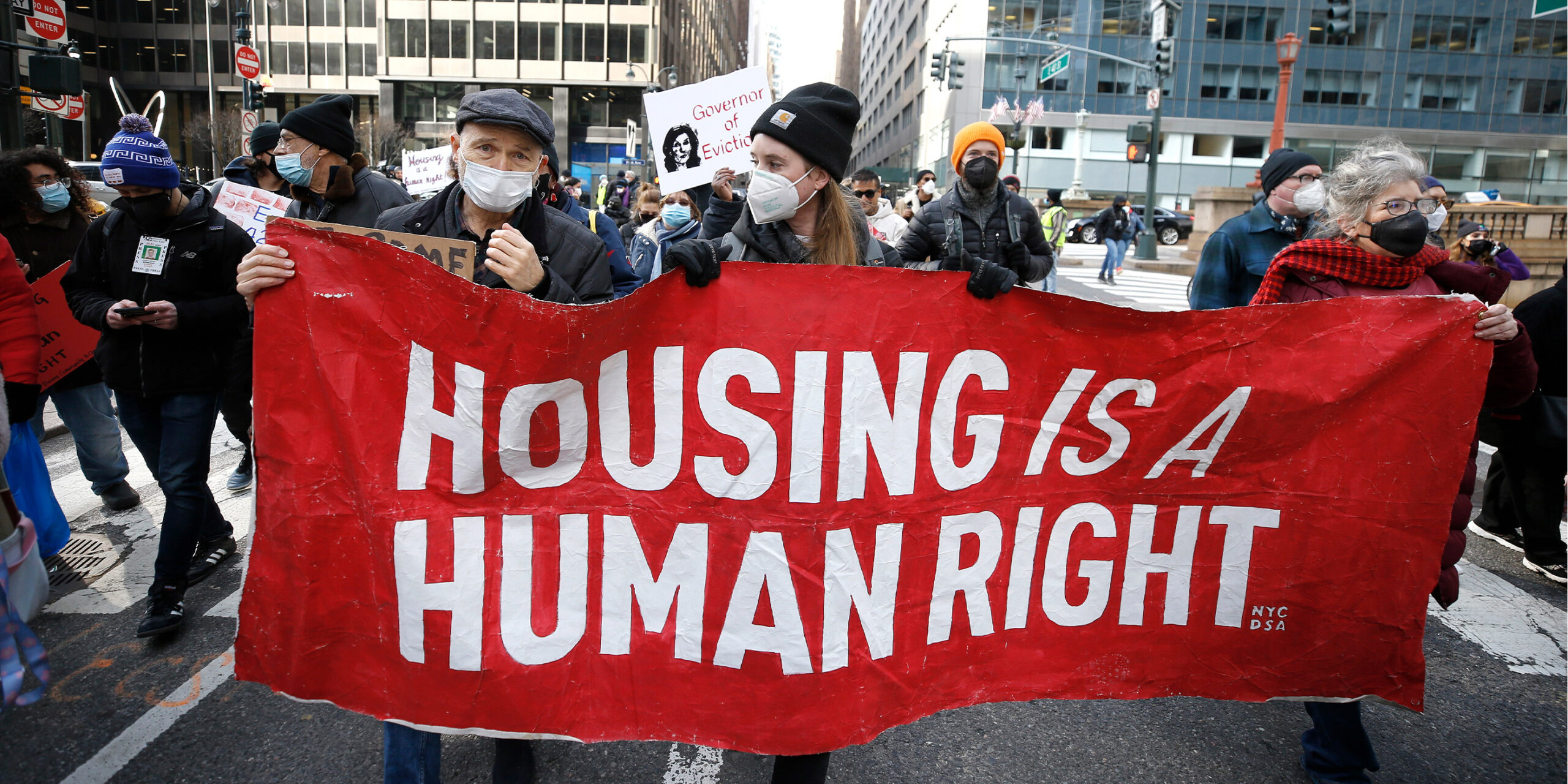An ACLU and National Coalition for a Civil Right to Counsel investigation confirms legal representation for renters facing eviction is a critically important intervention to keep people in their homes and prevent the long-term harms of eviction.
Our country is facing a historic eviction crisis. Amid a nationwide housing shortage, rents are surging to unprecedented levels, and many renters cannot keep pace. In 2021, rents rose by an average of 14 percent, with cities like Austin, Miami, New York, Portland, and Newark facing increases as high as 40 percent. Simultaneously, protections against eviction instituted during the COVID-19 pandemic have largely expired. These factors have left more and more people and families across the country at risk of losing their housing. Exacerbating the issue further, renters facing eviction are almost always unrepresented in court proceedings. Nationwide, only 3 percent of renters are represented, compared to 81 percent of landlords on average. Our new report, “No Eviction Without Representation: Evictions’ Disproportionate Harms and the Promise of Right to Counsel,” illustrates how providing a right to counsel helps keep people in their homes.
Legal representation for renters facing eviction is a critically important intervention to keep people in their homes and prevent the long-term harms of eviction. Our new report assesses the impacts of eviction and how they contribute to a cycle of poverty that frequently results in homelessness and harms communities. For example, when evictions force families out of their homes, they often simultaneously force children to change schools, disrupting their education and health. Evictions can also result in job loss, lead to long-term damage to the physical and mental health of those who are evicted, and severely constrict housing choice and accessibility in the future. An eviction record often disqualifies tenants from federal housing assistance, and many landlords won’t accept tenants with a previous record of eviction, leading to a cycle that results in homelessness.
The report also explores how these harms are disproportionately experienced by Black and Latinx people, especially women and children. Black individuals account for nearly 33 percent of all eviction filing defendants, despite comprising only roughly 20 percent of all adult renters. The number of women evicted is 16 percent higher than the number of men evicted, and Black women face eviction filings at nearly twice the rate of white women. In addition, having children in the household is as likely to contribute to an eviction judgement as falling four months behind in rent.
Finally, the report examines how providing legal representation to renters can significantly mitigate a mass eviction crisis. It looks at research from pilot projects, representation and cost-benefit studies, and existing right to counsel programs to assess the impact of legal representation for renters in eviction proceedings. The results are clear: Legal representation for renters is a well-demonstrated, cost-effective intervention in the eviction crisis.
In New York City, the right to counsel has meant that 84 percent of represented renters facing eviction have remained in their homes. In Cleveland, the right to counsel program has helped 93 percent of represented renters avoid an eviction judgment or an involuntary move, and 83 percent of the program’s clients whose goal was to secure rental assistance were able to do so. And in various studies estimating the costs and benefits of a right to counsel, cities and states have been projected to see significant net savings from the program by reducing the costs associated with eviction. Just one example is a study on the potential cost savings of enacting a right to counsel in Massachusetts, which found that such a program would result in an overall estimated cost savings of $36.73 million annually, providing a return of approximately $2.40 for every one dollar spent on full legal representation in eviction cases. And in a recent analysis of Cleveland’s right to counsel, the estimated net savings to Cleveland and Cuyahoga County were approximately $1.8 to $1.9 million.
To date, 15 cities and three states have enacted a right to counsel for renters in eviction cases. Many more are actively considering adopting a right to legal representation for those facing eviction. The research shows that the right to counsel for renters is a vital strategy to prevent and mitigate the harms of eviction.
Our report concludes by making the following recommendations for federal, state, and local governments:
- The Federal government should:
- Fully fund efforts to establish and implement the right to counsel for renters at the state and local level.
- Increase awareness among localities and states about the portions of Emergency Rental Assistance Program and Fiscal Recovery Fund dollars available for legal services, and work to make these funding sources permanent.
- Local and state governments should:
- Enact and implement a right to counsel for renters facing eviction in their jurisdictions.
- Support research and evaluation that assesses longer-term outcomes and identify best practices of right to counsel efforts.
Eviction is a gender justice issue. It is a racial justice issue. It is an economic justice issue. It is a children’s rights issue. And it is a civil liberties issue. The research demonstrates that the right to counsel effectively mitigates and prevents the serious harms of eviction and gives families a fighting chance to stay in their homes and communities. Ensuring a right to counsel for renters in eviction proceedings can play a vital role in helping to address systemic inequity and our nation’s inexcusable failure to invest in affordable housing for all.

